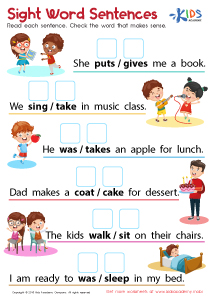Extra Challenge Reading Non-Fiction Worksheets for Ages 4-9
6 filtered results
-
From - To
Explore our Extra Challenge Reading Non-Fiction Worksheets for ages 4-9 designed to engage young readers. Tailored to enhance comprehension and critical thinking, these worksheets cover a range of intriguing real-world topics. Each activity promotes the development of vocabulary, reasoning, and analytical skills. Ideal for young learners ready to take their reading skills to the next level, these exercises support their journey from understanding to applying non-fiction content. Perfect for parents, teachers, and homeschooling, our worksheets make learning both effective and enjoyable. Give your child the extra challenge needed to excel in reading with our expertly crafted resources.
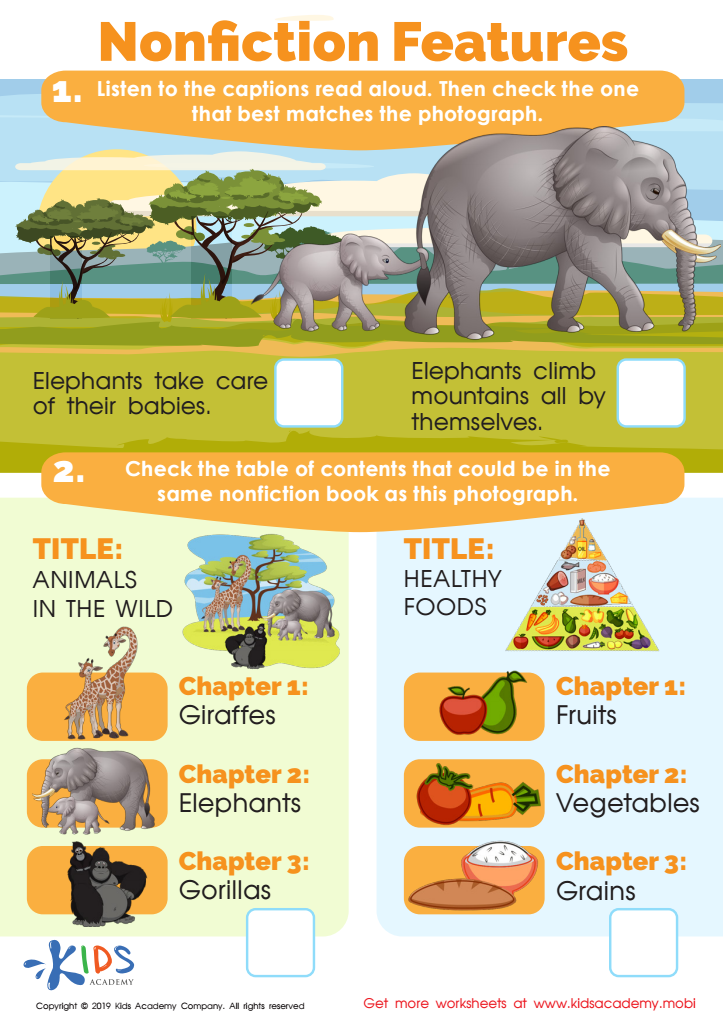

Nonfiction Features Worksheet
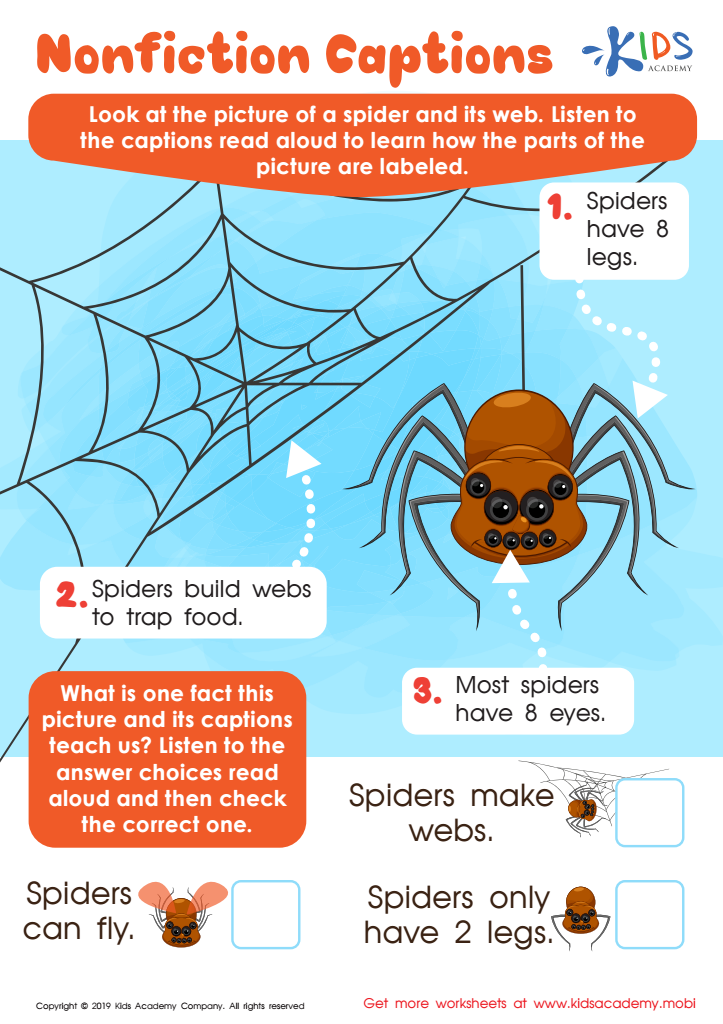

Nonfiction Captions Worksheet
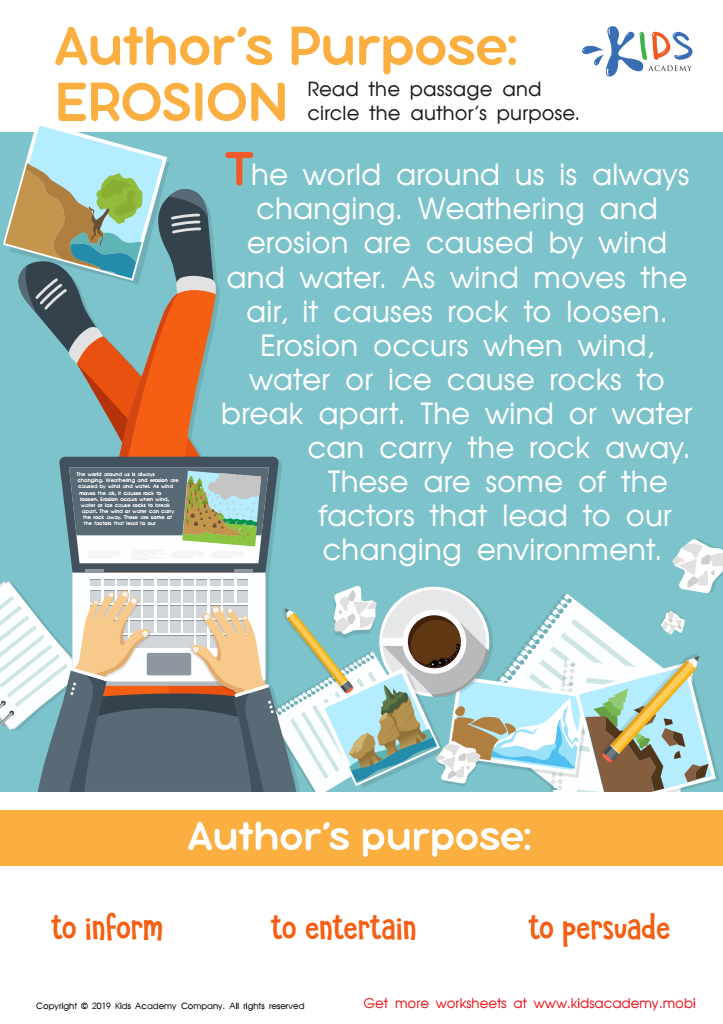

Author’s Purpose: Erosion Worksheet
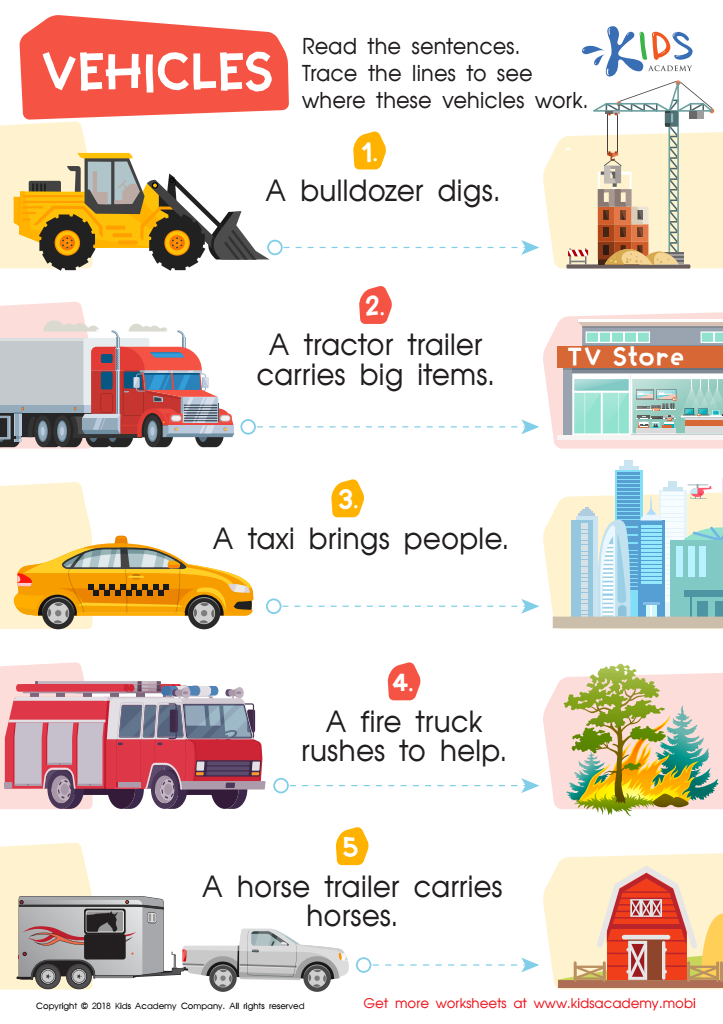

Vehicles Worksheet
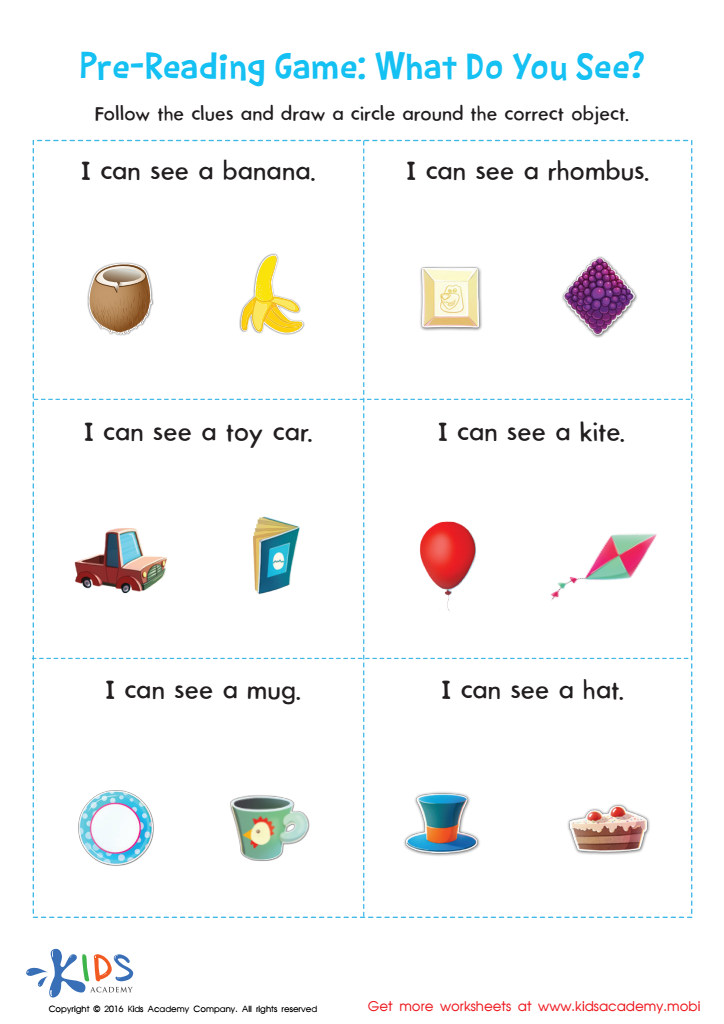

Pre–reading Worksheet: What Do You See?
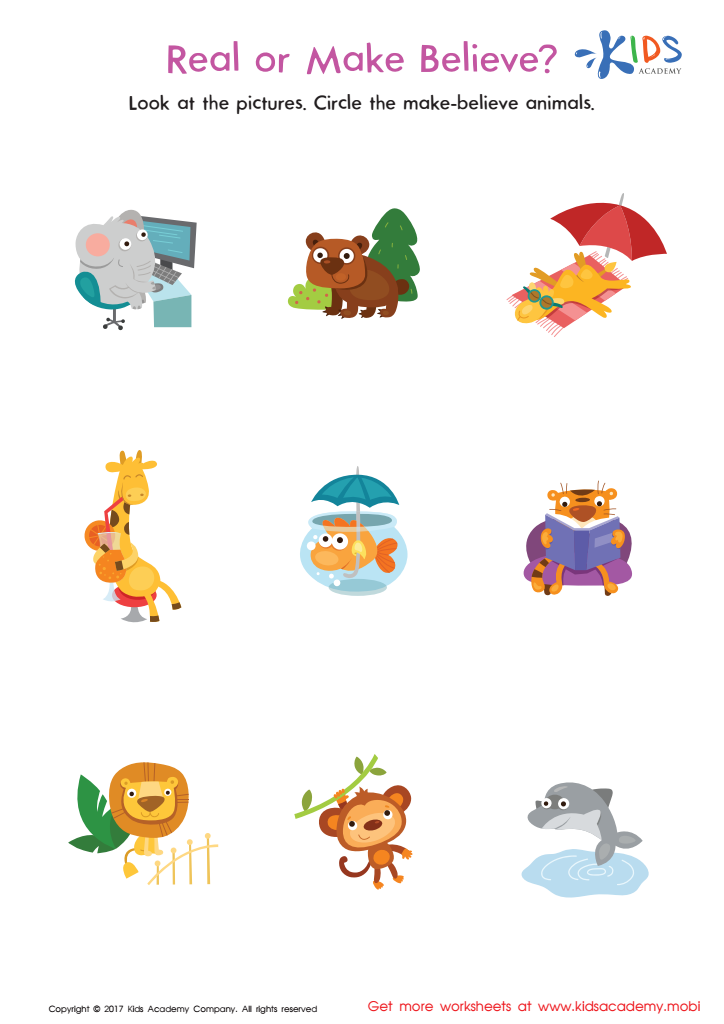

Fact or Make Believe Worksheet
Extra challenge reading non-fiction books for children aged 4-9 holds significant value for both parents and teachers, impacting young learners' cognitive and personal development in several key ways. First, non-fiction material introduces children to factual content about the world, sparking curiosity and broadening their knowledge base. Learning about animals, geography, history, and scientific concepts nurtures a sense of wonder and inquiry.
Second, non-fiction reading helps develop critical thinking and analytical skills. As children digest information from real-life sources, they learn to distinguish between facts and opinions and identify main ideas and supporting details. Such skills are essential for academic success and for understanding complex subjects later in life.
Third, early exposure to non-fiction can improve vocabulary and language competencies. Technical terms and descriptive language used in non-fiction texts increase children's lexical range, supporting better communication skills.
Finally, enjoying non-fiction maintains engagement in reading by diversifying available content. Ensuring a balance between fiction, which stimulates imagination, and non-fiction, which grounds them in reality, helps maintain a balanced perspective.
For parents and teachers, enabling access to challenging non-fiction reading resources equips children with foundational skills, enriches their learning experience, and supports lifelong learning habits.

 Assign to the classroom
Assign to the classroom






